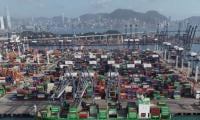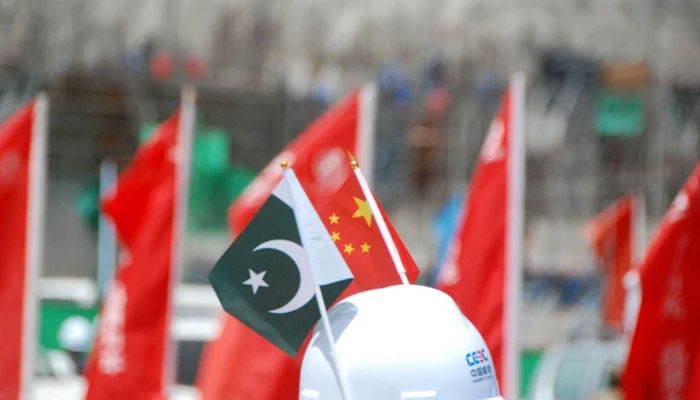The dynamics of Pak-China relations
To understand the depth of this partnership, it is essential to recognise its historical foundations
The relationship between Pakistan and China, rooted in decades of diplomatic collaboration and strategic cooperation, exemplifies the complexities and synergies that shape contemporary geopolitics. Spanning economic collaborations, military alliances, and cultural exchanges, the ties between Islamabad and Beijing have evolved into a multifaceted bond that not only covers a broad spectrum of sectors but also significantly influences regional dynamics.
To understand the depth of this partnership, it is essential to recognise its historical foundations. Pakistan was the first Islamic and the third non-communist country to formally recognise the People’s Republic of China in 1950, marking the beginning of a robust alliance. Diplomatic ties, initiated in May 1951, laid the groundwork for a deep and enduring friendship, emphasising mutual respect for sovereignty and non-interference in internal affairs. This alliance was particularly fortified during critical moments in Pakistan’s history, notably during two full-scale wars with India in 1965 and 1971, when China provided crucial diplomatic and military support. Moreover, China’s unwavering backing on issues such as Kashmir has further cemented this partnership, despite its evolving foreign policy stance; Beijing’s commitment to funding infrastructure projects in contested areas underscores the depth of this enduring bond.
The economic relationship between Pakistan and China has gained significant momentum since the early 2000s, building on their historical ties and characterised by landmark initiatives such as the China-Pakistan Economic Corridor (CPEC). Launched in 2015, CPEC is a flagship project of China’s Belt and Road Initiative (BRI) and has catalysed substantial infrastructure development across Pakistan. To date, CPEC has attracted approximately $46 billion in capital, comprising concessionary loans, commercial debt, and investments with state guarantees. This influx of investment has not only revitalised Pakistan’s infrastructure but has also facilitated the establishment of Special Economic Zones (SEZs), expected to draw further foreign direct investment (FDI). Recent reports indicate that China is the largest contributor to FDI in Pakistan, holding a 30 percent share and investing $568 million during the fiscal year 2023-2024.
This growing economic collaboration got further importance at a recent Business Roundtable Conference held in Beijing’s Chaoyang District, presided over by Federal Minister Abdul Aleem Khan. The conference attracted major Chinese investment companies interested in various sectors, including agriculture, automobiles, and technology. It focused on enhancing cooperation between China and Pakistan, resulting in the signing of several Memoranda of Understanding (MOUs) in fields like textile technology and agriculture. Abdul Aleem Khan emphasised the country’s substantial reserves of coal and copper, and the favourable investment climate, inviting Chinese companies to relocate their industries. The conference also featured discussions on the privatisation of Distribution Companies (DISCOs) and cooperation on key infrastructure projects, showcasing both nations’ commitment to strengthening economic ties and fostering mutual development.
Furthermore, Bilateral trade between Pakistan and China has experienced significant growth, with total trade reaching approximately $15.6 billion in 2021. This expansion reflects a broader trend, as trade volume between China and other countries participating in the Belt and Road Initiative (BRI) has doubled from $1.04 trillion in 2013 to $2.07 trillion in 2022, averaging an annual growth rate of 8%. In June 2023, China exported goods worth $1.53 billion to Pakistan, while imports from Pakistan amounted to $271 million, yielding a positive trade balance of $1.25 billion for China. Such figures underscore the economic interdependence between the two nations and their implications for regional stability. By July 2024, China exported $1.34 billion and imported $195 million from Pakistan, resulting in a trade surplus of $1.15 billion for China. Comparatively, between July 2023 and July 2024, China’s exports decreased by $115 million (or 7.87%) from $1.46 billion, while imports fell by $95 million (or 32.7%) from $291 million. This evolving trade landscape highlights both the challenges and
opportunities within the economic ties between Pakistan and China, illustrating their ongoing collaboration across various sectors.
Additionally, military cooperation represents a crucial aspect of the Pakistan-China partnership. China is Pakistan’s primary arms supplier, enhancing its defense capabilities through arms sales and military technology transfers. This strategic alliance encompasses joint military exercises and intelligence sharing, particularly in the realms of counterterrorism and regional security. Moreover, China’s support has proven invaluable during crises, as evidenced by its timely assistance during Pakistan’s post-flood recovery efforts.
Beyond military and economic dimensions, the ties between Pakistan and China extend into cultural and educational realms, reinforcing their multifaceted partnership. China has become the preferred destination for Pakistani students seeking higher education, hosting nearly 28,000 students across various universities. This educational exchange not only fosters people-to-people connections but also strengthens long-term diplomatic ties. In addition, cultural exchanges have been facilitated through initiatives such as the China-Pakistan Cultural Exchange Program, which promotes mutual understanding and respect between the two nations. Collaborative events in art, literature, and sports continue to deepen the bonds between the peoples of both countries, illustrating the significance of soft power in their relationship.
As the geopolitical landscape continues to evolve, the Pakistan-China relationship is poised for further growth. Both nations are exploring new avenues for cooperation, particularly in technology, agriculture, and renewable energy. China’s recent focus on environmental sustainability aligns with Pakistan’s need for clean energy solutions, creating opportunities for collaboration in solar, wind, and hydropower projects. The upcoming years will likely see an increase in investments in technology parks, joint laboratories, and research centers, further solidifying the multifaceted cooperation that defines this partnership.
-
 Eric Dane’s Friends Initiate GoFundMe To 'support' His Two Daughters After His Death At 53
Eric Dane’s Friends Initiate GoFundMe To 'support' His Two Daughters After His Death At 53 -
 Internet Erupts After Candace Owens Claims Elon Musk And Sam Altman Are ‘not Human’
Internet Erupts After Candace Owens Claims Elon Musk And Sam Altman Are ‘not Human’ -
 Will Princess Beatrice, Eugenie Stay In Contact With Andrew? Source Speaks Out
Will Princess Beatrice, Eugenie Stay In Contact With Andrew? Source Speaks Out -
 ‘AI Revolution Is Coming Fast & US Has No Clue,’ Bernie Sanders Warns Of Speed Of Disruption
‘AI Revolution Is Coming Fast & US Has No Clue,’ Bernie Sanders Warns Of Speed Of Disruption -
 Hong Kong Touts Stability,unique Trade Advantages As Trump’s Global Tariff Sparks Market Volatility
Hong Kong Touts Stability,unique Trade Advantages As Trump’s Global Tariff Sparks Market Volatility -
 ‘Miracle On Ice’ Redux? US Men Chase First Olympic Hockey Gold In 46 Years Against Canada
‘Miracle On Ice’ Redux? US Men Chase First Olympic Hockey Gold In 46 Years Against Canada -
 Friedrich Merz Heads To China For High Stakes Talks In An Effort To Reset Strained Trade Relations
Friedrich Merz Heads To China For High Stakes Talks In An Effort To Reset Strained Trade Relations -
 Astronauts Face Life Threatening Risk On Boeing Starliner, NASA Says
Astronauts Face Life Threatening Risk On Boeing Starliner, NASA Says -
 Hailey Bieber Reveals How Having Ovarian Cysts Is 'never Fun'
Hailey Bieber Reveals How Having Ovarian Cysts Is 'never Fun' -
 Kayla Nicole Looks Back On Travis Kelce Split, Calls It ‘right Person, Wrong Time’
Kayla Nicole Looks Back On Travis Kelce Split, Calls It ‘right Person, Wrong Time’ -
 Prince William And Kate Middleton Extend Support Message After Curling Team Reaches Olympic Gold Final
Prince William And Kate Middleton Extend Support Message After Curling Team Reaches Olympic Gold Final -
 Nvidia CEO Praises Elon Musk, Calls Him An ‘extraordinary Engineer'
Nvidia CEO Praises Elon Musk, Calls Him An ‘extraordinary Engineer' -
 Shia LaBeouf's Mugshot Released After Mardi Gras Arrest On Battery Allegations In New Orleans
Shia LaBeouf's Mugshot Released After Mardi Gras Arrest On Battery Allegations In New Orleans -
 Timothee Chalamet Felt '17 Again' After Reunion With 'Interstellar' Director Christopher Nolan
Timothee Chalamet Felt '17 Again' After Reunion With 'Interstellar' Director Christopher Nolan -
 Conan O'Brien Speaks First Time After Rob Reiner's Killing
Conan O'Brien Speaks First Time After Rob Reiner's Killing -
 Giant Tortoise Reintroduced To Island After Almost 200 Years
Giant Tortoise Reintroduced To Island After Almost 200 Years




